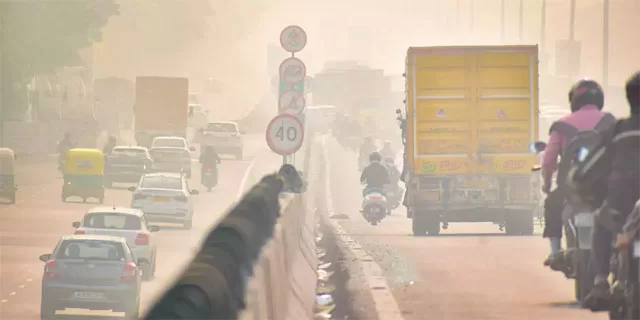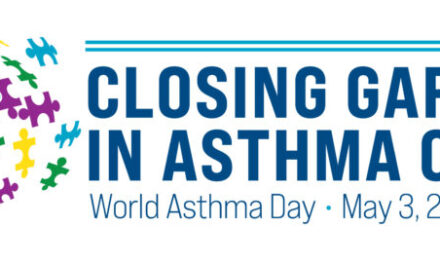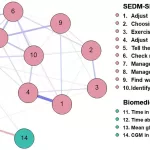New Delhi, November 7 – On National Cancer Awareness Day, health experts across India have highlighted the growing threat posed by air pollution in the country, emphasizing its role in increasing cancer rates. Experts reported a concerning rise in cases of lung, bladder, breast, prostate, and blood cancers linked to the high levels of airborne carcinogens. National Cancer Awareness Day, observed annually on November 7, seeks to spotlight India’s rising cancer burden and drive efforts for prevention, early detection, and better treatment options.
India’s population, now exceeding 1.4 billion, faces a sharp increase in cancer cases due to various factors, including lifestyle changes, tobacco use, poor diets, and lack of physical activity. According to the Health Ministry, nearly 800,000 new cancer cases arise each year, with tobacco-related cancers contributing up to 50% of cases in men and 17% in women. Dr. Abhishek Shankar, Assistant Professor of Radiation Oncology at the Dr. B.R. Ambedkar Institute Rotary Cancer Hospital at AIIMS, Delhi, stated that the country sees more than 1.4 million new cancer patients annually, with almost 900,000 fatalities, attributing this surge to both lifestyle choices and environmental factors.
Dr. Shankar explained, “Tobacco, alcohol, infections such as HPV, Hepatitis, and Helicobacter pylori, along with diet, sedentary lifestyle, and environmental pollution, are major contributing factors.” While lifestyle factors remain critical, environmental contributors, especially air pollution, play an increasingly harmful role.
Pollution’s Toxic Toll on Public Health
India’s air quality continues to be a significant concern. On Thursday, the Air Quality Index (AQI) in Delhi-NCR reached a hazardous level of 362, according to the Central Pollution Control Board (CPCB). Dr. Shankar warned that such elevated levels of pollution, especially exposure to PM2.5 particles, are linked to rising lung cancer rates, even among non-smokers, and pose a risk for other cancers such as bladder, prostate, and blood cancers.
Studies have shown that prolonged exposure to PM2.5 particles, which are tiny enough to penetrate deep into the lungs and enter the bloodstream, can cause cellular mutations, triggering cancer development. The World Health Organization (WHO) has classified outdoor air pollution as a Group 1 carcinogen, affirming its role in causing cancer in humans.
“Industrial pollutants contaminating water and soil are also significant contributors,” Dr. Shankar noted, stressing that communities near industrial zones face heightened cancer risks due to direct exposure to these pollutants.
Carcinogens in the Air and Their Impact
Dr. Sajjan Rajpurohit, Senior Director of Medical Oncology at Max Super Speciality Hospital, highlighted that vehicle emissions, industrial activities, and the burning of biomass in India release carcinogenic substances such as benzene, formaldehyde, and polycyclic aromatic hydrocarbons (PAHs). “These chemicals, alongside PM2.5 particles, contribute directly to cancer risk by altering cell structures and promoting mutation,” he said.
Children, the elderly, and individuals with existing health issues are particularly vulnerable to air pollution’s carcinogenic effects, further intensifying the public health crisis in India. “The increased susceptibility among these groups may lead to higher cancer rates, especially in heavily polluted urban areas,” Dr. Rajpurohit added.
Calls for Prevention and Early Detection
To curb the rising cancer rates, Dr. Shankar advocated for a multi-faceted approach: leading a healthy lifestyle with a balanced diet, regular exercise, avoiding tobacco and alcohol, and reducing exposure to PM2.5 pollution. “Lifestyle improvements alone are insufficient; we need structural changes to tackle pollution,” he emphasized.
Dr. Sachin Trivedi, Director of Medical Oncology at HCG Cancer Center, underscored the importance of early detection and regular cancer screenings, particularly for breast, lung, colorectal, and oral cancers. “Early detection is crucial for better outcomes and can help manage cancer effectively,” Dr. Trivedi said.
With cancer cases climbing and pollution levels unabated, India faces a pressing public health challenge that requires coordinated efforts in policy, healthcare, and public awareness to safeguard future generations from the debilitating effects of pollution-induced cancers.











